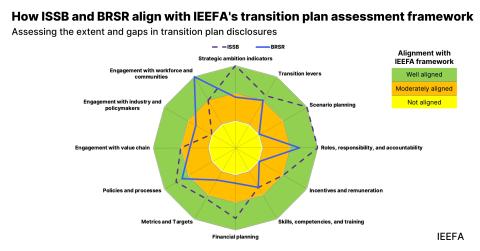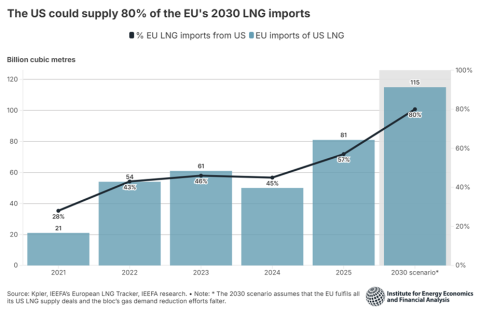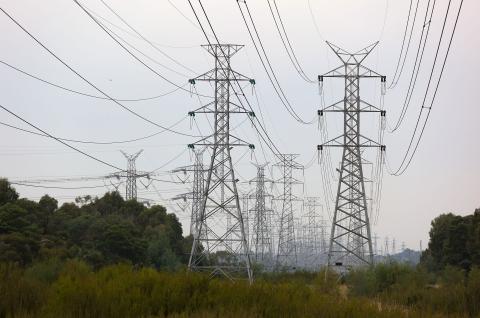IEEFA welcomes the European Commission’s adoption of the first set of sustainability reporting standards
Download Full Version

Key Findings
IEEFA welcomes the European Commission’s adoption of the first set of European Sustainability Reporting Standards but raises concerns over the increased role of materiality assessments.
IEEFA welcomes the European Commission’s adoption of the first set of European Sustainability Reporting Standards (ESRS), which was announced yesterday. This follows a public consultation on the draft, which IEEFA submitted a response to last month. Nevertheless, we remain concerned about the increased role of undertakings’ materiality assessments in determining what information they disclose to the market.
Background
There has been growing demand for data regarding sustainability matters, along with the growth of sustainable capital markets. Both are required to enable the transition to a more sustainable economy. However, the lack of quality and comparable data has been restricting stakeholders’ decision-making capacity, creating additional costs and impeding or distorting capital flows. To help overcome these issues, the European Financial Reporting Advisory Group (EFRAG) launched in April 2022 a first set of sector-agnostic draft ESRS for feedback.
IEEFA recognises the overall initiative as a breakthrough towards enhancing data availability, consistency and integrity. In June 2023, the European Commission (EC) released its first draft ESRS delegated act, which, in our view, reflected a weaker version of the final recommendations that were published by EFRAG in November 2022. This fell short of our expectation that the European Union (EU) would show global leadership by pursuing a high technical standard on the subject matter under the EU Sustainable Finance Framework. IEEFA welcomed the opportunity to respond to the draft, and on 6 July 2023, we submitted our response outlining our key concerns and recommendations.
Summary
IEEFA’s key concern is the increased role of materiality assessments, as such assessments conducted by undertakings will become highly determinant to the level of disclosure requirements. As currently written in the adoption, the conclusion of whether a sustainability matter is material seems to be non-binary and the bar seems not defined in a clear and mechanical manner, which may leave room for interpretation and cause biases and inconsistencies.
While IEEFA supports and welcomes the fact that the principle of double materiality remains intact, the outlined processes and disclosure requirement around materiality assessments do not reflect the level of rigour needed to match the critical role these assessments play. The flexibility given to undertakings to gauge their individual circumstances may be counter-productive at times when some stakeholders have views that are significantly different from those of the undertakings towards materiality.
IEEFA welcomes that the adopted text includes some changes from the draft, namely (i) the disclosure requirement of a “detailed explanation of the conclusions of materiality assessments with regard to climate change”, and (ii) the clarification requirement when a datapoint deriving from the Sustainable Finance Disclosure Regulation, the Benchmarks Regulation or the “pillar 3” disclosure requirements under the Capital Requirements Regulation is deemed as not material. Nevertheless, the final adoption has not fully addressed the main concerns highlighted in our submission.
Recommendations
As outlined in our submission, IEEFA recommends that the EC should, over time:
- Define a more systematic and unified approach – including a forward-looking lens – to materiality assessment processes.
- Require mandatory disclosure around undertakings’ all materiality assessment conclusions.
- Broaden the number of mandatory requirements and datapoints based on a re-assessment of sustainability matters’ severity characteristics.
- Consider broad sector-specific mandatory requirements in the upcoming sector-specific ESRS, aided by a guiding sector materiality mapping.
For further information and detail, the complete submission can be downloaded here.
















